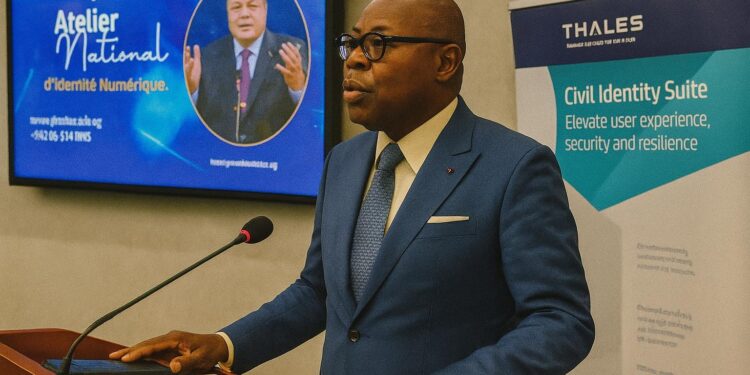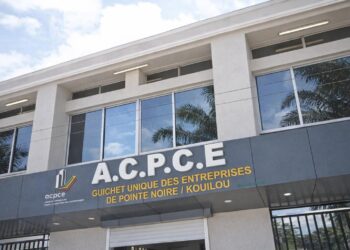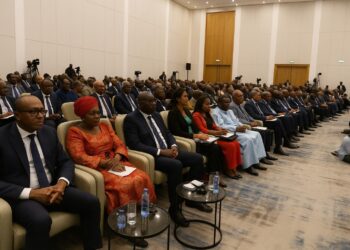A Strategic Inflection Point for Congo’s E-Governance
When Minister Léon Juste Ibombo convened cabinet colleagues, private-sector innovators and multilateral lenders in Brazzaville on 16 July, the gathering’s symbolism extended well beyond the celebration of an International Digital Identity Day. It marked what senior officials describe as an inflection point in the Republic of Congo’s statecraft: the transition from paper-based registries to a secure, interoperable digital identity architecture that could ultimately underpin every interaction between citizen and state. Participants echoed President Denis Sassou Nguesso’s long-stated ambition to position the country as a sub-regional technology hub, an ambition crystallised in the Congo Digital 2025 strategy.
Brazzaville Aligns with Continental Digital Agenda
Congo’s roadmap sits comfortably within the African Union’s Digital Transformation Strategy 2020-2030, which calls on member states to deliver legal and trusted digital identities to at least half the continent’s population by 2030 (African Union 2020). Ministers emphasised that a credible ID is indispensable for achieving the UN Sustainable Development Goal 16.9 on universal legal identity. By placing the project under the umbrella of the World Bank-funded Digital Transformation Acceleration Project, a facility worth 100 million US dollars approved in 2022 (World Bank 2022), Brazzaville has tied its objectives to international governance benchmarks on privacy, cybersecurity and open standards.
From Civil Registry to Cloud: The Technical Blueprint
In concrete terms, the architecture envisages a biometric core that links birth certificates, national ID cards, passports, driving licences and even the forthcoming universal health-coverage card to a single, encrypted personal identifier. French technology group Thales, which already provides secure documents for several ECOWAS states, indicated that it stands ready to supply encryption modules, document personalisation equipment and remote proof-of-life services, all compliant with ICAO 9303 travel document standards. Congolese engineers from the new African Centre for Artificial Intelligence in Oyo are expected to localise algorithms for de-duplication and liveness detection, an approach designed to retain sensitive source code onshore and thus reinforce digital sovereignty.
Safeguarding Sovereignty Through Data Protection
Politically, Brazzaville is keen to demonstrate that the modernisation drive will not come at the expense of civil liberties. The draft Personal Data Protection Bill, now before parliament, borrows extensively from the Malabo Convention on Cybersecurity and the EU’s GDPR, mandating explicit consent for biometric processing and establishing an independent supervisory authority modelled on Morocco’s CNDP. Government advisers argue that a stringent legal framework is not only a democratic imperative but also a prerequisite for cross-border interoperability within the Central African Economic and Monetary Community, where data adequacy assessments are gaining traction.
Economic and Social Dividends Anticipated
Economists at the Economic Commission for Africa estimate that robust identity systems can unlock up to 3 percent of GDP by widening the tax base and cutting fraud in social programmes (ECA 2021). In Congo’s case, the Ministry of Finance projects savings of 25 million dollars annually through the elimination of ghost workers alone. On the citizen side, a secure digital ID could open formal banking to more than 60 percent of adults currently without accounts, lowering remittance costs and accelerating mobile-money adoption, a sector that has grown by 24 percent year-on-year according to the Central Bank of Central Africa.
Partnerships Anchored in Trust and Compliance
International partners view Brazzaville’s incremental approach as prudent. The World Bank mission chief, Lilia Burunciuc, noted in a recent briefing that disbursements will be performance-based, tied to independent audits of cybersecurity readiness. For its part, the French Development Agency is exploring a parallel grant to strengthen civil-service training, while UNDP plans to deploy its Digital Public Goods tool-kit to ensure that source code published by Congolese developers remains vendor-neutral. These layered safeguards appear designed to reassure both domestic stakeholders and donors that the project will not become another case of ‘vendor lock-in’ that has plagued prior e-government schemes on the continent.
An Incremental Path Toward 2025 Benchmarks
Officials concede that the timeline is ambitious. The pilot phase in Brazzaville and Pointe-Noire, covering some 1.5 million residents, is scheduled for completion by mid-2024, after which the system will expand to rural sub-prefectures using mobile enrolment kits powered by solar panels. By end-2025, every citizen should, in principle, possess a verifiable digital credential accepted by public hospitals, revenue offices and polling stations. While infrastructure gaps and bandwidth constraints remain, the political consensus across ruling and opposition benches signals rare unanimity around a national project whose dividends—administrative efficiency, financial inclusion and reputational gains—are palpable. In that sense, Congo’s digital identity drive may well prove to be not merely a technological upgrade but a subtle exercise in state legitimacy for the post-pandemic era.












































